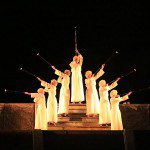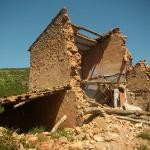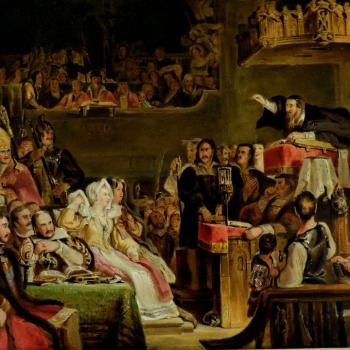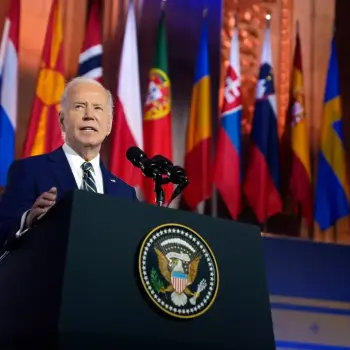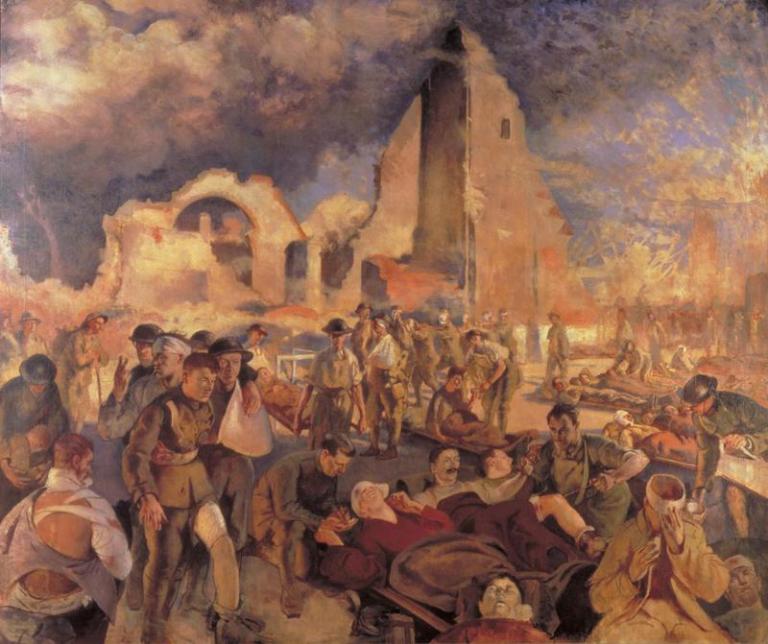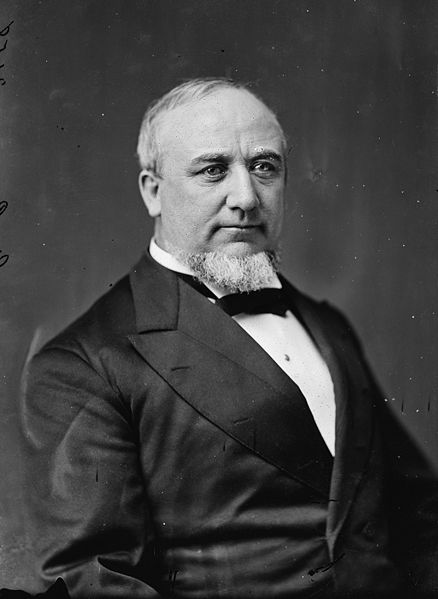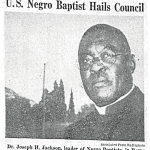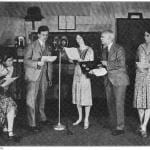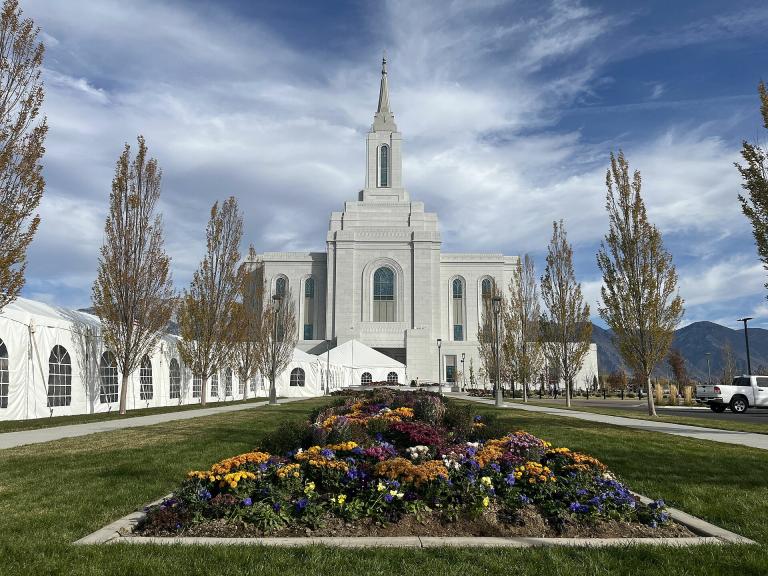
Our last church meetings of 2023 were, I thought, quite good. Our first sacrament meeting speaker today was a young woman from our ward who has interrupted her studies at Brigham Young University to accept a call to the Chile Antofagasta Mission. She spoke quite well and will, I think, be a wonderful missionary. Our bishop then spoke for the remainder of the meeting, making quite a strong plea for older people to serve as senior missionaries. (More on that in a moment.). He drew on his own family’s history — parents, parents in law, an aunt and an uncle — of serving senior missions, but also on Elder Ronald A. Rasband’s remarks on the subject at the October 2023 General Conference of the Church, which are well worth reading and considering. And he called our attention to the Church’s website for potential senior missionaries, which is very helpful. (It’s certainly not a “one-size-fits-all” kind of program; there are various ways of serving, domestically, abroad, part-time, full-time, from home, and so forth.)
Today’s priesthood meeting was divided into two distinct parts, with two different teachers. I missed most of the first part, but I was there for the second, which was devoted to the topic of building a community of unity, without divisions. The teacher showed a roughly seven-minute video of Elder Christophe Giraud-Carrier, of the Seventy, speaking forthrightly about the unacceptability of racism within the Church of Jesus Christ. I was very pleased at his message.
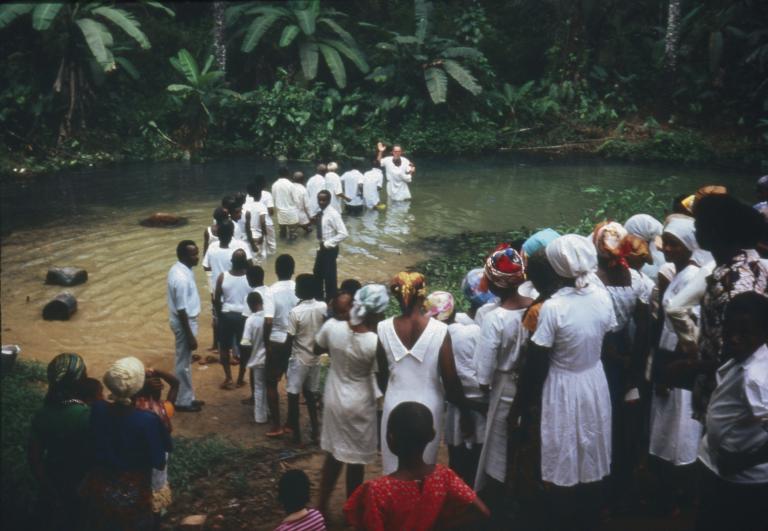
But back to the question of senior missionary service: This is a matter to which I’ve given, and to which I continue to give, a fair amount of thought. I hope that the response to my bishop’s invitation, and to Elder Rasband’s invitation, and to other such invitations, will be strong and positive. I believe strongly that older people should, where they can, devote at least some of their retirement years to service to others and to the Kingdom.
That said, though — and I know that some (certainly the small but obsessive coven of anonymous online critics who monitor my every word) will see this as self-glorifying, self-serving, arrogant, and hypocritical — I’ve concluded that, for the foreseeable future, my wife and I are already serving a kind of mission, one for which very few people would be willing or even quite able to take our exact place.
The Interpreter Foundation requires a lot of time, as do our film efforts. And I’m working, when I can, on several enormous book projects, as well as a continual flow of articles, that I hope and believe might someday be of some benefit to at least a few Latter-day Saints. Altogether, I spend easily forty hours a week on such things — from morning until, typically, late at night — and already I worry that, at my advanced stage of senectitude, I’m not going to be able to finish them.
Accordingly, we’ve decided against submitting mission papers. But I certainly hope that others will step forward to do so. Perhaps things will change for us, but I really don’t intend to give up apologetics, Interpreter, and writing until I’m simply, flatly, unable to keep going — and, at that time, of course, I’ll be in no shape to serve much of a mission.
In the near term, I had actually hoped to volunteer to serve during the just-concluded Orem Temple open house, but we were already scheduled to accompany tours during that time to Türkiye, Egypt, and (as we thought at the time) Israel, as well as to visit family in Virginia and in Mexico. So we simply couldn’t. And I had hoped to be able to serve in the temple after its dedication — no more lengthy journeys to the two temples in far-off Provo! — but our calendar simply won’t permit such a commitment for at least the next year. Still, I admire and, in a sense, envy those who are able to serve in such a way. I’ll cite one example to illustrate what I mean:
Edwin Q. Cannon had served as a bishop before he was my president in the Switzerland Zürich Mission — which, in those days, was responsible not only for German-speaking Switzerland but for Church units in North Africa, Greece, Israel, the Arab and Persian Middle East, and Afghanistan. (He had to visit those branches each quarter.) He told me, not terribly long before he was released, that he was looking forward to relaxing for a while on his ranch in Wyoming. But then his brother was called as a mission president, and he was obliged to reenter the family business in the Salt Lake Valley. And then his wife, Janath Russell Cannon, was called into the General Relief Society presidency and he was called to serve in the International Mission presidency. And then they were called to open missionary work in Ghana and Nigeria. And then they were called to direct the Nauvoo Visitors Center. And then he was called as the interim president of the Germany Hamburg Mission while its president re-opened missionary work in East Germany. And then they were called to preside over the Frankfurt Germany Temple. And on and on. (I’m sure I’ve forgotten some assignments.)
They were bright — they had met while she was a student at Wellesley and he was earning an MBA at Harvard — but, more than that, they were faithful, devoted, and two of the kindest people I’ve ever known. In his final remarks in Zürich before he returned to the United States, President Cannon said that, if nothing else, he wanted the Swiss to remember that he had loved them. And, surely, that was one of the most obvious and noteworthy things about him. About them.
I once stupidly recounted their story — to me, an impressive and exemplary story — in a setting where certain critics of the Church were vocal and active. Those critics pounced. The Church had shamefully exploited the Cannons, they said.
I saw it differently, and I know that the Cannons had seen it differently, as well. And I thought how much better it would be to have been loved, to be missed, and to be mourned by hundreds if not thousands of people in North America, Europe, Africa, and the Middle East than to die as a cynical, sneering nay-sayer.
I wish you all a wonderful 2024, and a consequential life to which, at its end, you’ll be able to look back with peaceful satisfaction.


